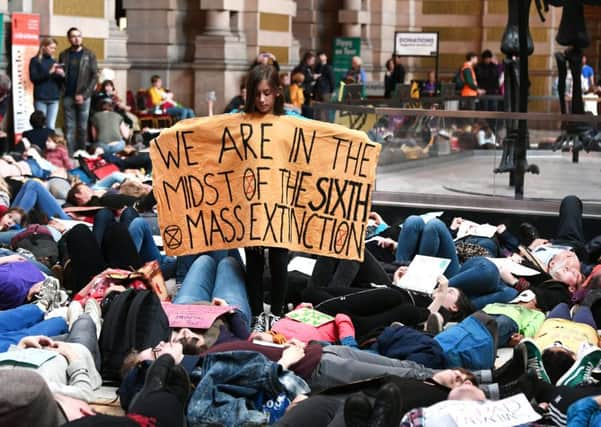Social enterprises are setting the agenda on tackling climate change – Duncan Thorp


Large numbers of people around Scotland and the world are beginning to understand the stark reality of climate change. Established campaigners have now been joined by radical direct action groups like Extinction Rebellion.
Many social enterprises across Scotland already understand their responsibilities in confronting this challenge and strive to fulfil their own vital environmental mission.
Advertisement
Hide AdAdvertisement
Hide AdTheir particular focus might be recycling, land management, regeneration or some other green mission – but they’re all united in improving the natural environment in some way. In turn they’re helping build a new type of circular, sustainable and inclusive economy.
According to the new 2019 Social Enterprise Census 28 per cent of Scottish social enterprises have a specific objective of “protecting or improving the environment”, 20 per cent of “reducing waste” and six per cent of “producing renewable energy”.
There are currently 179 identified environment and recycling social enterprises, up 15 per cent since 2015. Those working in property, energy, utilities and land number 315, an increase of 32 per cent over the same period.
Environment and recycling social enterprises provide an economic contribution of £41.0m, a 27 per cent increase since 2017. While those working in property, energy, utilities and land contributed £36.1m in 2019, a ten per cent increase.
It’s also fair to say that most social enterprises are aware of taking positive action in terms of their environmental responsibilities, whatever their objectives or social mission.
Community Resources Network Scotland (CRNS) is the national body for social enterprises in reuse, repair and recycling. Michael Cook, Chief Executive of CRNS says: “There’s a real opportunity for social enterprises across Scotland to respond to the climate change crisis.
“This global environmental problem urgently needs a local community response. There are many simple and easy to implement ideas such as starting a repair cafe, tool library or community fridge, both tackling climate change and providing wider community benefits. Care for planet and care for people often goes hand in hand.”
Places to rent out tools like Edinburgh Tool Library and Cumbernauld Tool Library are a growing movement. The average home power drill is used just 13 minutes in its lifetime, so borrowing instead of owning is better for the environment.
Advertisement
Hide AdAdvertisement
Hide AdSimilarly, repair cafes are springing up across Scotland, enabling people to get broken items fixed but also learn how to fix items themselves. The Edinburgh Remakery diverts waste from landfill, building a stronger community and promoting a culture of repair and reuse.
Changeworks Recycling is a major Scottish social enterprise dedicated to recycling and waste management for businesses. Point and Sandwick Trust built and operates its own wind farm on the Isle of Lewis. Profits from this, the largest community owned wind farm in the UK, are used to provide support to the local charity ecosystem.
It’s clear that the old way of doing business no longer works as we deal with this new reality. Businesses of all types and sizes, in partnership with the public sector, must step up and do things differently in order to confront the climate emergency. Even small changes can result in a big impact.
Some big businesses, as well as traditional SMEs, are facing up to their responsibilities in tackling climate change. But there’s a lot they can learn in terms of the innovation that’s taking place in the social enterprise community.
The role of social enterprise is to lead on this agenda, inspire others and demonstrate the radical alternatives.
Duncan Thorp, Social Enterprise Scotland